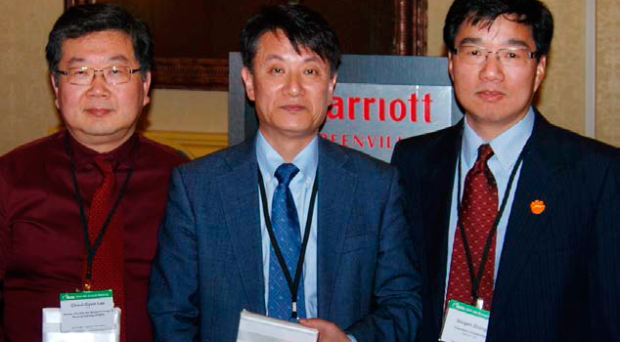
The IBE is the official society of the Journal of Biological Engineering. For 21 plus years, IBE has been supporting the community of scientists and engineers who are at the forefront of creating new linkages between biology and engineering: It seeks far-reaching opportunities for connecting with people and developing designs and educational perspectives through biology-inspired engineering. To me, what sets IBE apart from many other professional societies is its focus on addressing the grand challenges (or, the biggest problems, in Bill Gates’s words) of our times — sustainable food, energy, and environmental systems and quality health — rather than on advancing any specific scientific discipline, by using inclusive approaches through the broadest network of partners from all fields of life sciences, physical sciences, engineering, etc.
For 21 plus years, IBE has been supporting the community of scientists and engineers who are at the forefront of creating new linkages between biology and engineering.
As president, I plan to energize the IBE leadership team and members and forge coalitions with sister societies to make a dent in bringing on the much anticipated Biological Revolution for the 21 st century (in reference to the Industrial Revolution and Digital Revolution of the past two centuries). I plan to use IBE as a professional platform to bring awareness of the increasing importance of transdisciplinary integration of life sciences, physical sciences and engineering for developing deeper understanding of complex living systems and for engineering novel solutions to address the grand challenges of our times — sustainable food, energy, and environmental systems and quality health in the spirit of seeking convergence.
For example, we have defined the theme of the 2017 IBE Annual Conference to promote convergence in several topical areas including synthetic biology, tissue engineering, nanotechnology, biosensors, biomaterials, metabolic engineering, environmental engineering, bioprocessing engineering and bioenergetics, among others. With support from the Burroughs Wellcome Fund, I will host a special session on “Convergence for Advancing Regulatory Science” with an invited panel of influential scientists, engineers, regulators and think-tank members to engage the audience to brainstorm the meaning, needs, ethics and challenges of regulatory science and identify best practices to advance regulatory science and innovation through convergence of disciplines. Moreover, to instill this in future movers and shakers, we plan a Bioethics Essay Contest for graduate and undergraduate students on issues involved in regulatory science, approval of drugs and therapeutic devices and ways to advance regulatory science in the spirit of seeking convergences.
In my mind, the most important challenge facing today’s biological engineers is the same one facing all other engineers, that is, to break away from the disciplinary confinement of learning, exploring and innovating.
In my mind, the most important challenge facing today’s biological engineers is the same one facing all other engineers, that is, to break away from the disciplinary confinement of learning, exploring and innovating. In a textbook to be published in March 2017*, I devote the first chapter to laying out my arguments and suggestions for promoting a transdisciplinary way of engineering and innovating. Biological engineering actually is well positioned to overcome this challenge. I strongly believe that we can be much more effective and productive in tackling the biggest problems of our time if we pay attention to the common threads and hidden interdependencies among food, energy, the environment and health.
Some of the new frontiers of biological engineering involve synthetic biology and genetic engineering. The knowledge made in these fields will offer groundbreaking opportunities to advance the fields of tissue engineering and regenerative medicine, among others. Take the scaffolds needed in tissue engineering and regenerative medicine, for example: If they no longer have to be constructed using synthetic materials or demineralized tissues, but can be made of biological and/or genetic materials instead, many of the difficulties hindering realization of the bounteous promises of tissue engineering and regenerative medicine could be eliminated. Along the way, imagine how many new possibilities and paradigms the field of biological engineering could offer for solving health, food, energy and environmental problems with the fewest unintended consequences.
*Introduction to Integrative Engineering by Guigen Zhang CRC Press, March 2017
The 2017 Annual Meeting of the Institute of Biological Engineering will be in Salt Lake City, Utah, March 30-April 1, 2017.
Jenny Bourne, MA, MS
Latest posts by Jenny Bourne, MA, MS (see all)
- Zhang advocates for convergence - 30th March 2017
The positive and forward-looking attitudes expressed in the article are like a breath of fresh air at this time when pessimism and lack of vision usually dominate public discourse. However, the lack of any mention of population stabilization is a severe oversight in the article. The world’s problems cannot be solved by the biological revolution unless this revolution also includes quickly lowering the birthrate to the replacement level or below.